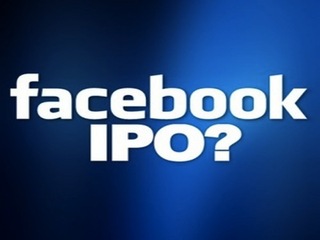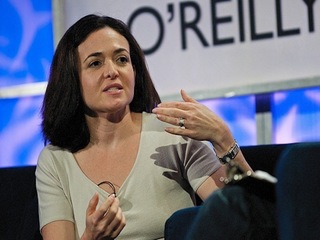
We have heard it before and will likely here it again in this case, Facebook will be another company to make 1,000 millionaires — and a handful of billionaires.
While it first was coined for the Google IPO in 2004, the Facebook IPO is roughly five times the size and will make a mountain of millionaires in the Silicon Valley — retailers of ostentatious items should start pulling out the yellow Lotus’ and personalized private planes in storage now.
According to the filing Wednesday, Mark Zuckerberg owns 533.8 million shares, a 28% stake, in the stock of the company he founded — for those counting, that is now estimated at near $28 billion. Not too shabby for a 27-year-old.
But even more interestingly, Zuckerberg will also retain a majority control over Facebook Inc. with 56.9% of the voting power. That is a hearty hold on his company, much more than the 36% voting power Mark Pincus snagged when his gaming company, Zynga went public late last year.
So, it looks like Zuckerberg won’t be loosening his power over Facebook, even in a public offering — which is much of what we anticipated.
Who else is getting on the money train
If we use the $100 billion valuation estimate for the shareholders invloved then we edn up with quite a strong group of billionaires in the Facebook catalog.
 The former neighboring VC firm, Accel Partners, is now the single biggest outside investor in Facebook with its 10% share after some early investments, including a $12.7 million round that locked in a, then, 15% chunk of the company back when the valuation was under $100 million.
The former neighboring VC firm, Accel Partners, is now the single biggest outside investor in Facebook with its 10% share after some early investments, including a $12.7 million round that locked in a, then, 15% chunk of the company back when the valuation was under $100 million.
 The restaurant entrepreneur, Yuri Milner, has bought stakes in Groupon, Zynga and Twitter, but his companies’ (Digital Sky Technologies and Start Fund) early-on investment in Facebook could be the most lucrative.
The restaurant entrepreneur, Yuri Milner, has bought stakes in Groupon, Zynga and Twitter, but his companies’ (Digital Sky Technologies and Start Fund) early-on investment in Facebook could be the most lucrative.
Milner’s companies control an estimated 10% of Facebook.

Former roommate to Zuckerberg at Harvard, Dustin Moskovitz infamously dropped out of his coursework for economics to become the Facebook CTO, but not without his early entrance piece of the pie.
Moskovitz left Facebook in 2008 with a 6% stake, value now near $6 billion.
 Eduardo Saverin, one of the three co-founders and a classmate of Zuckerberg’s, was initially granted a 30% chunk of the social network before leaving the company a few years back — but after more rounds of funding taken on — he now holds a 5% stake as we look toward the company hitting the public markets.
Eduardo Saverin, one of the three co-founders and a classmate of Zuckerberg’s, was initially granted a 30% chunk of the social network before leaving the company a few years back — but after more rounds of funding taken on — he now holds a 5% stake as we look toward the company hitting the public markets.
 Sean Parker, the founder and edgy young entrepreneur from Napster left the startup in 2005 after some legal troubles but will bank at least $4 billion from his 4% holdings and is already on the road to launching some type of new music service online called Airtime.
Sean Parker, the founder and edgy young entrepreneur from Napster left the startup in 2005 after some legal troubles but will bank at least $4 billion from his 4% holdings and is already on the road to launching some type of new music service online called Airtime.
 The infamous serial investor Peter Thiel was one of Facebook’s first significant outside investor ponied up $500,000 in 2004.
The infamous serial investor Peter Thiel was one of Facebook’s first significant outside investor ponied up $500,000 in 2004.
Since the early 2000’s, Thiel has been on most of the Web’s big movers such as PayPal and YouTube, but his board position and 3% stake in Facebook is proving to be one of the best investments he could have made — now worth up to $3 billion.
Back in 2007, Microsoft invested handsomely into Facebook with a solid $240 million check, giving the computer technology company a 1.6% stake. Not a shabby return, considering that the company made a net income for the quarter ending Sept. 2011 brought in $5.74 billion.
Greylock Partners and Meritech Capital Partners each are standing by with 1.5% of Facebook stock. Both companies were a part of the Series B funding in 2006 that handed $27.5 million to the young social networking company.
While it took a larger bag of money to invest later in the game, U2 frontman Bono’s funding company Elevation Partners handed over $120 million to Facebook in 2010 and now has a 1.5% piece of the pie.
The first lady of Facebook, Sheryl Sandberg wouldn’t be such a pivotal figure in Silicon Valley if, as the COO of one of the biggest companies, she didn’t come out financially set-for-life. In addition to income compensation, Sandberg owns 1,899,986 in common stock and 39,321,041 in restricted stock units, which means she is pocket $2 billion in Facebook stock value when the company goes public.























